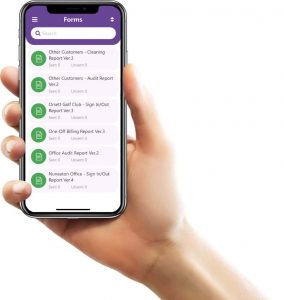Business reporting is something that many of us need to do as a primary part of our jobs. Whether you are expected to produce these reports, weekly, monthly, quarterly, or annually, getting them right is absolutely vital. You may already know that ensuring you capture the data correctly and tell a story is important, but what are the best practices in business reporting? How can you write business reports that are clear, detailed, and useful?
We have collected some of the principles that contribute to the best practices in business reporting. However frequently you write reports, these are invaluable ways in which you can become better at it; read on to find out more.
Be consistent
One of the main issues that can come up with business reports is a lack of consistency. As an organisation, you should have clear guidelines regarding such matters as what data will need to be tracked, what the time frames are for this tracking, and who specifically should be tracking it.

It should also be clear how this data is tracked and recorded so that there is consistency that makes it easier to gather the data later. This can help to alleviate the number of blank spots and inconsistencies in the reports themselves. This basic guidance also means that all relevant members of a team will know how this works, reducing the number of questions that have to be passed along to higher members of staff, saving time later on. Consistency throughout the data gathering process leads to higher quality reporting.
Simplify the data
This can be a difficult one. Knowing which data to track can be hard enough to begin with, but capturing a streamlined amount of data is a good idea for more specific reporting. Capturing a wider range of data might seem like a good idea at the time, but much of this will go unused and can create wasted time. Instead, look at what data aligns with the long term goals of your organisation and streamline it. This can alleviate inefficiencies in both data gathering and reporting, and lead to clearer conclusions.

Tell a story
Simply presenting data is not enough in the context of business reporting. You will need to present the data in the most appropriate way possible. Breaking down the data into a simplified form as previously mentioned makes it easier to build a story around it, showing how the information gathered illustrates gains, losses, and other essential information which can show how your department or company is functioning, and suggest areas for improvement.
Have a strategy in mind
You will want to know what your end goal is before you begin the process of reporting. A business that is unsure of its end goal is a business that may not reach its full potential. Consider the data points necessary to support the organisation in achieving its goals and then implement these. It is best to set smaller goals for your organisation rather than just relying on large goals that might take a long time to achieve. While it might seem that this just results in more reporting, this is an essential part of having a realistic and achievable plan that can be closely monitored, with successes (or failures) that can be clearly demonstrated.

Ensure clarity of communication
It is rare that only one staff member is involved in the building of a report, so having clear collaboration and communication between colleagues is essential. Multiple people may gather different data measurements, leading to inconsistencies and inefficiencies. Be thoughtful when assigning tasks to different team members and coordinate who is reporting and delivering which data.
While this is a vital part of clear report writing, it is also important to note that sharing paper-based data or even virtually sharing data via email or shared spreadsheets can leave your organisation open to confidentiality breaches. It is important to use the right software for the task to ensure maximum security so that data stays safe and uncorrupted.
Keep clear records
The quality of your records is absolutely imperative to best practice business reporting. Keeping clear records of your database and the reporting requirements of your company is a good way to prevent certain issues. Having best-practice instructions for record-keeping should be baked into your business’ training, but also ensuring that records can only be edited by approved team members is a good way to ensure the integrity of your data.

Storing your data in the correct place can help with this, as well. Paper records are all too easy to lose or corrupt, besides being difficult to access for those working from home. In an increasingly agile working environment, it is essential that all the relevant people have access to the correct records in order to engage in best practices. Keeping your records in a cloud-based system with approved team members able to access the data is a fantastic way to keep your records safe and clear.
Be prepared to evaluate
Best practice plans are there for a reason because, without them, it would be nearly impossible to write clear, concise, and applicable reports. However, remember that you are likely going to need to reassess and restructure based on how needs change. How you evaluate your successes and failures may change and the guidelines may need to shift to accommodate changes both within your business and the wider world.
Try Tapapp

Are you looking for the best way to save paper and simplify the way in which your data is kept? Tapapp represents a move away from the traditional, paper-based systems of the past, allowing you to employ an environmentally friendly solution that also contributes to your best practice business reporting. Your data is securely stored in UK servers, making it accessible to those who need it for reports and other business reasons, and giving you a full scope of where your data is kept, ensuring compliance with legal expectations.
For a better way to store your data and cut down on paper waste, try Tapapp, and enjoy an easier way to achieve best practice in business reporting.
More in our blog:
